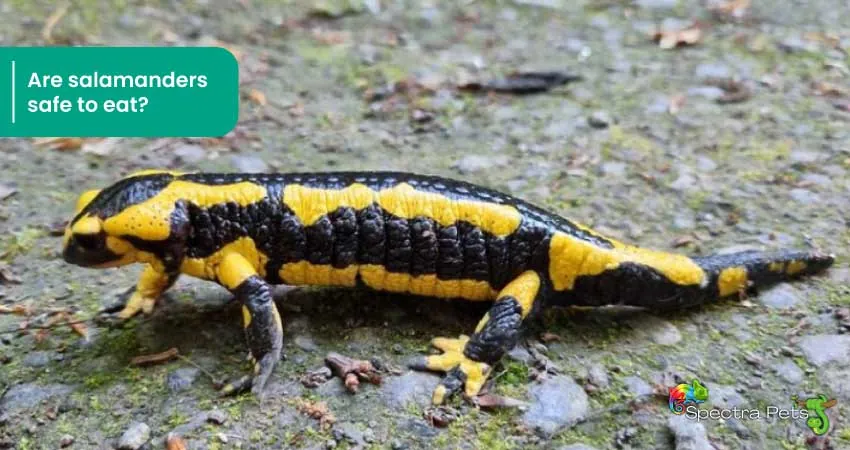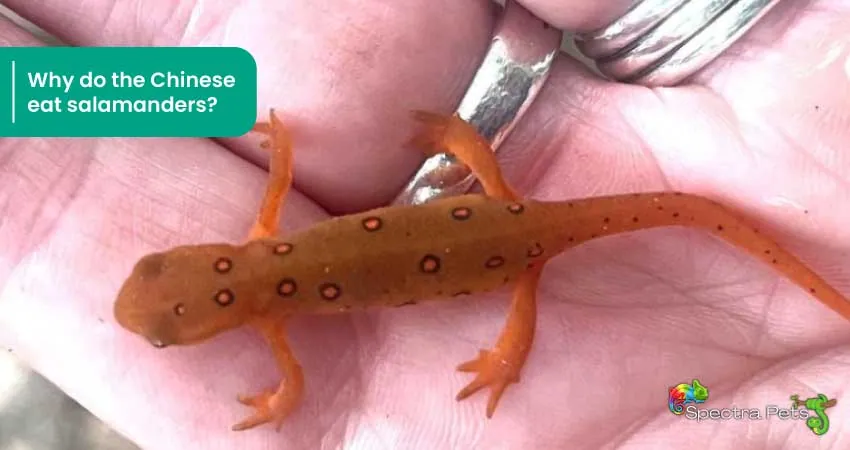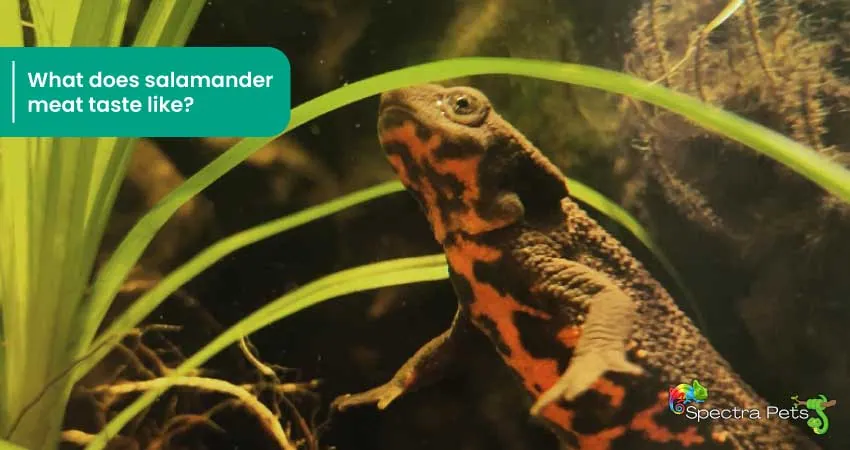Amphibians such as toads and frogs have been a significant part of people’s diets for a long time. So much so, that people nowadays don’t bat an eye when they see someone eating frogs or toads. This might make you interested in all the other amphibians, such as salamanders, and whether they are okay to eat.
Whether or not you can eat a salamander depends on what species of salamander you are going for. For instance, giant salamanders are okay to eat and are considered a luxury delicacy in China. On the other hand, some salamanders are extremely toxic and can lead to death if you try to eat them.
Let’s take a look at the ins and outs of eating salamanders.
Are salamanders safe to eat?

When it comes to eating an animal, you have to do thorough research on it, especially if it’s a reptile or amphibian. Don’t be like those people who eat first and ask questions later. You’d suffer in this case.
Whereas most mammals, fish, and birds are pretty safe for humans to eat (apart from a few fish), amphibians and reptiles are a different story. This is because a lot of these animals have venoms or toxins which can be fatal if ingested.
When it comes to amphibians, a lot of them are pretty commonly eaten throughout the world, such as toads and frogs. Even then, not all species of toads and frogs are suitable for eating, since a lot of them secrete toxins from their skin and other organs. Since salamanders belong to the same class, it is only natural to wonder whether salamanders are poisonous or not.
There are 777 species of newts and salamanders in the world, and not all of them are suitable to eat. There are a few reasons you should consider before you decide to eat a salamander.
1. The ethics of the issue
Chinese giant salamanders are okay to eat and are even considered a delicacy in China. As a result, the demand for these animals in fancy Chinese restaurants is massive. This is causing these animals to be nearly hunted to extinction. Now, since it is okay to eat salamander, you are free to do so, but will it be ethical?
You decide to eat a dish or soup made of the Chinese giant salamander will cause yet another one of these critically endangered species to be killed. This will only contribute towards their extinction. This animal has been living on this earth for over 170 million years, and now because of our actions, they are set to be eradicated from the face of the earth.
The Chinese Government has made it illegal to hunt giant salamanders for eating but it has produced no significant results. So, can you cook and eat salamanders? Yes, you can, but it will be hughly unethical.
2. Safety issues
Now we come to the safety issues of this topic. Among over 700 species of salamanders, some are toxic, while some are not, as is the trend with amphibians. If you decide to eat a salamander, you need to know which salamanders are toxic and which ones are not. For example, the aforementioned Chinese Giant Salamanders are completely safe to eat and pose no threats to human health.
On the other hand, eating a lot of Newt species can have serious repercussions, and you might even die due to their toxins. Species such as Roughskin Newts or Spotted Salamanders are extremely toxic and eating them will almost definitely lead to your death. But, not all Newts are not toxic, so you have to do your research before eating them.
So, if you ever wonder what happens if you eat a salamander, keep the species in mind.
Why do the Chinese eat salamanders?

Despite being on the brink of extinction, Giant salamanders are in high demand in various fancy restaurants. But why is that? What makes the Chinese eat an animal so much that it is near extinction? There are two reasons behind this.
First, as I’ve stated earlier, the giant salamander is considered a luxury delicacy in China and has been considered so for a long, long time. That’s why despite the government-imposed ban on giant salamander hunting, people have not stopped eating this amphibian which has contributed to them being hunted.
Second, salamander body parts are used for traditional Chinese medicine. As traditional medicine still has a significant influence on Chinese culture, the use of salamander body parts has not subsided, even with the advent of modern medicine. This is another reason the Chinese still consume salamanders.
What does salamander meat taste like?

If you decide to eat salamander meat after all, then it will most likely be an exotic dish to you. Chances are that you have never tasted salamander meat before, so its taste is a mystery to you. So, what does salamander taste like?
Well, the taste of salamander meat depends on which species you are eating and how you are cooking it. But in general, the meat is said to have a mild flavor and the taste resembles that of chicken. Japanese giant salamanders have a slight smell of sansho, the Japanese pepper. The meat also has a crunchy texture.
Parting Notes
Salamanders are one of the most beautiful and unique amphibians in the world. While it might seem a good idea to eat them because other amphibians are eaten regularly, you should do a bit of research before eating them. You should stray away from eating salamanders if it is critically endangered such as the Chinese giant salamander or highly toxic like Rough skin newts.
